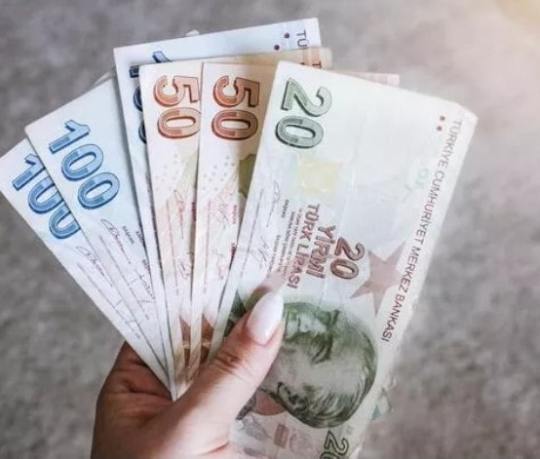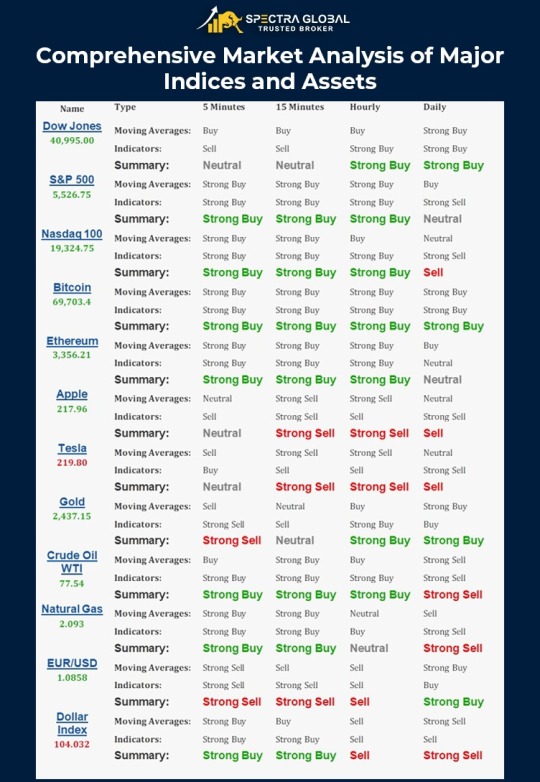#usdollar
Explore tagged Tumblr posts
Text
US Dollar Index Decline Could Propel Bitcoin Price to All-Time High in 2025

A Drop in the US Dollar Index Signals a Bullish Bitcoin Price Surge Toward New All-Time Highs. The recent decline in the US Dollar Index (DXY) is fueling speculations that Bitcoin (BTC) could soon reach a new all-time high. The connection between the US Dollar Index and the performance of Bitcoin has been evident in previous market cycles, and analysts are increasingly optimistic about the cryptocurrency's trajectory in 2025.

The US Dollar Index (DXY), which measures the value of the US dollar against a basket of other currencies, has fallen significantly in recent weeks. This movement has piqued the interest of crypto professionals, including Jamie Coutts, Chief Crypto Analyst at Real Vision. Coutts recently highlighted historical trends that show that large losses in the DXY are frequently followed by significant increases in the price of Bitcoin. According to Coutts, when the DXY falls by more than 2%, Bitcoin tends to rally with an average gain of 31.6%, a trend with a remarkable 94% success record over the next 90 days. Also Read: tokenized-assets-hit-50b-projected-to-reach-2t-by-2030/ This observation is not based solely on assumption. Coutts' backtest indicated that if the DXY fell more than 2.5%, Bitcoin gained an average of 37%, with 100% of these occurrences yielding positive returns. The recent slide in the US Dollar Index follows a similar pattern, prompting many to anticipate that Bitcoin will reach new all-time highs by May 2025. The inverse association between the US Dollar Index and Bitcoin is not a recent phenomena. When the US currency falls, investors typically flock to alternative assets, such as Bitcoin, as a store of value. This trend has been most visible during times of economic instability and rising inflation, when traditional dollar-based investments lose appeal. Bitcoin's price has already shown strong upward momentum in the early months of 2025, and present conditions indicate that the trend may continue. Analysts believe that the combination of the US Dollar Index's slide and Bitcoin's increased institutional adoption could pave the way for a new all-time high. In addition to macroeconomic concerns, strong technical indicators indicate to a bright future for Bitcoin. Bitcoin has been steadily rising, breaching major resistance levels and gaining new attention from both retail and institutional investors. These factors, together with the possibility of continuing weakness in the US dollar, indicate that Bitcoin may soon achieve a new all-time high, maybe exceeding $100,000. As we approach 2025, investors will need to regularly monitor the US Dollar Index. If the DXY continues its downward trend, Bitcoin may be well-positioned for a massive price surge, reaching new highs and paving the way for more optimistic market circumstances. The next few months could be important for Bitcoin, with many believing that the cryptocurrency could break past prior price boundaries and reach new all-time highs. To summarise, the decrease in the US Dollar Index provides a unique opportunity for Bitcoin to prosper. If past tendencies hold true, Bitcoin may soon reach an all-time high, ushering in a new period of bullish momentum for the leading cryptocurrency. Read the full article
#2025BitcoinPredictions#All-TimeHigh#Bitcoin#bitcoinforecast#Bitcoinprice#BTCPriceSurge#CryptoAnalysis#cryptocurrency#MarketTrends#USDollar#USDollarIndex
2 notes
·
View notes
Text
The Future of Bitcoin in the Global Economy: Ending the Dollar’s Reign

Bitcoin, the pioneering cryptocurrency, is gaining traction as a powerful force in the global economy. As the US dollar continues to dominate as the global reserve currency, it's worth exploring how Bitcoin could disrupt this dynamic and potentially lead to a more equitable economic landscape. In this blog post, we will examine the profound impact of the US dollar's hegemony and how Bitcoin could usher in a new era of global financial fairness.
The Hegemony of the US Dollar
Since World War II, the US dollar has held the prestigious position of being the world's reserve currency. This status has allowed the United States to enjoy significant economic advantages, including the ability to print money at will and run large deficits without immediate consequences. The "dollar milkshake theory" suggests that as global economies struggle, they need more dollars, which strengthens the US economy at the expense of others. This dynamic has allowed the US to skim off the top of the productive world, reaping benefits while other nations bear the costs.
The Global Cost of Dollar Dominance
The dominance of the US dollar has led to widespread economic challenges for many countries. As nations rely on the dollar for international trade and reserves, they become vulnerable to currency devaluation and economic instability. The ability of the US to print money devalues the savings and earnings of people worldwide, effectively destroying wealth across the globe. Examples of this can be seen in countries facing hyperinflation, such as Venezuela and Zimbabwe, where reliance on the dollar has exacerbated economic hardships.
Bitcoin as a Global Currency and Truth in Pricing
Enter Bitcoin, a decentralized digital currency with a fixed supply of 21 million coins. Unlike fiat currencies, Bitcoin cannot be printed or manipulated by any single entity. This feature makes it an attractive alternative to the US dollar, providing a more stable and transparent monetary system. Bitcoin's decentralized nature ensures that no single country or organization can control its value, making it a potential tool for achieving global economic balance. Importantly, Bitcoin represents truth in pricing. While anything denominated in US dollars can be deceptive due to inflation and monetary policy manipulation, Bitcoin provides a clear, unaltered measure of value.
The Impact of Bitcoin Adoption
If Bitcoin were to be widely adopted, it could shift the global economic power structure. Countries currently disadvantaged by the dollar system could benefit from a more stable and equitable currency. Bitcoin's transparency and fixed supply could reduce the likelihood of economic manipulation and provide a more predictable environment for international trade. This shift could lead to more equitable wealth distribution and true pricing of goods and services, as countries no longer have to bear the brunt of the US's economic policies.
Challenges and Considerations
Transitioning to Bitcoin as a global currency is not without challenges. Regulatory issues, technological barriers, and the need for international cooperation are significant hurdles. Additionally, infrastructure development is crucial to support widespread Bitcoin adoption. However, these challenges are not insurmountable, and with concerted effort, the global community can pave the way for a more stable and fair economic system.
Conclusion
The potential of Bitcoin to disrupt the current economic order is profound. By providing an alternative to the US dollar, Bitcoin could lead to a more equitable and stable global economy. Its nature as a truthful measure of value further enhances its appeal as a transformative force in the financial world. As we explore this possibility, it is essential to stay informed about Bitcoin and consider its implications for our financial future.
Call to Action
If you found this post insightful, subscribe to our blog for more updates and in-depth analyses on Bitcoin and the financial landscape. Share this post on social media to help spread awareness about the transformative potential of Bitcoin.
Take Action Towards Financial Independence
If this article has sparked your interest in the transformative potential of Bitcoin, there's so much more to explore! Dive deeper into the world of financial independence and revolutionize your understanding of money by following my blog and subscribing to my YouTube channel.
🌐 Blog: Unplugged Financial Blog Stay updated with insightful articles, detailed analyses, and practical advice on navigating the evolving financial landscape. Learn about the history of money, the flaws in our current financial systems, and how Bitcoin can offer a path to a more secure and independent financial future.
📺 YouTube Channel: Unplugged Financial Subscribe to our YouTube channel for engaging video content that breaks down complex financial topics into easy-to-understand segments. From in-depth discussions on monetary policies to the latest trends in cryptocurrency, our videos will equip you with the knowledge you need to make informed financial decisions.
👍 Like, subscribe, and hit the notification bell to stay updated with our latest content. Whether you're a seasoned investor, a curious newcomer, or someone concerned about the future of your financial health, our community is here to support you on your journey to financial independence.
#Bitcoin#Cryptocurrency#GlobalEconomy#FinancialFreedom#USDollar#EconomicRevolution#Decentralization#HardMoney#DigitalCurrency#Blockchain#MonetarySystem#BitcoinAdoption#EconomicStability#WealthDistribution#FinancialTruth#FutureOfMoney#CryptoCommunity#EconomicChange#BitcoinFuture#BTC#finance#financial experts#financial empowerment#unplugged financial#financial education
5 notes
·
View notes
Text
youtube
Saudi Arabia's Bold Move: Is the US Dollar Being DETHRONED?
The 50-year Petrodollar deal between Saudi Arabia and the US is ending in June 2024, potentially diminishing the US dollar's global dominance and impacting the world economy. Saudi Arabia's strategic shift towards trading oil in other currencies, like the Chinese yuan, and its involvement in the CBDC initiative Project mBridge reflect significant changes in global economic dynamics.
2 notes
·
View notes
Text
Hihi! I'm Morgan and I really need some money to help pay for college and to move out so I'm selling some characters!
Waffle bag is $2
Color Pallete one is $1
🍓 girl is $3
Rosaina Moth is $3
Daisy Moth is $3
Peach Moth is $3
I can take Cashapp (prefered) but if you have a different method dm me and I'll confirm I take it or not!!







#artwork#money slave#i need money#art adopts#adopts#usdollar#cashapp#art for money#commisions open#digital aritst#digital illustration#digital commissions open#art#artists on tumblr#waffles#strawberies#strawberry#strawberry girl#peach#princess peach#rosalina#daisy
14 notes
·
View notes
Text

Gelin beraber kazanalim kazanmak için mesaj atmanız yeterli ...
2 notes
·
View notes
Text

Naira Appreciates to ₦1,530.52 per US Dollar at Official Window http://dlvr.it/TJdyLv Follow, Like & Share
0 notes
Text
youtube
How Would a New BRICS Currency Affect the US Dollar?
The BRICS nations are actively discussing the creation of a new reserve currency as part of efforts to decrease dependence on the US dollar and transform the global financial system.
0 notes
Text
Ex-Doktor erklären sich damit einverstanden, 15 Millionen US-Dollar für die Beilegung von Kickback-Vorwürfen zu zahlen
Ein ehemaliger Van Nuys -Arzt, der kürzlich kürzlich gab seine medizinische Lizenz ab Nach sexuellen Bel��stigungen hat die Anschuldigungen einer Einigung über 15 Millionen US-Dollar wegen Vorwürfen zugestimmt, dass er und die Mitgeklagten Medicare und Medi-Cal falsche Ansprüche eingereicht haben. Das US-Justizministerium beschuldigte Mohammad Rasekhi, seinen Ehepartner und Geschäftspartner Sheila…
#Beilegung#damit#Die#einverstanden#erklären#ExDoktor#Für#KickbackVorwürfen#Millionen#sich#USDollar#von#zählen
0 notes
Text
Das stille Gold der EZB! Abschied vom US-Dollar?
0 notes
Text
0 notes
Text
Comprehensive Market Analysis of Major Indices and Assets

Explore a detailed market analysis featuring Dow Jones, S&P 500, Nasdaq 100, Bitcoin, Ethereum, Apple, Tesla, Gold, Crude Oil, Natural Gas, EUR/USD, and the US Dollar. Understand the moving averages and indicators, with summaries revealing strong buy or sell trends for informed trading decisions. Stay ahead in the market with this in-depth overview of key assets and their performance indicators.
#MarketAnalysis#DowJones#SP500#Nasdaq100#Bitcoin#Ethereum#AppleStock#TeslaStock#GoldPrices#CrudeOil#NaturalGas#EURUSD#USDollar#MovingAverages#TradingIndicators#BuyTrends#SellTrends#InformedTrading#AssetPerformance#FinancialMarkets
0 notes
Text

Keine gute Weltordnung
80 Jahre Bretton Woods
Nachdem wir vor einigen Tagen schon die Ökonomie und die Scheuklappen des Kapitalismus betrachtet hatten (EU verschläft die Energiewende), wollen wir heute erinnern an das Abkommen von Bretton Woods vor 80 Jahren.
730 Delegierte aus 44 Ländern waren in New Hampshire zusammengekommen, um das Abkommen zu unterzeichnen, weniger um es auszuhandeln. Die Folge davon waren im Globalen Norden durchaus relative Verbesserungen der Lebensbedingungen, aber der Süden musste unter den Folgen (weiter) leiden. Der verlinkte Artikel stellt fest:
Für etwa 750 Millionen Menschen , die zu dieser Zeit der Verhandlungen noch unter dem Joch der europäischen Fremdherrschaft lebten stützte die Bretton Woods-Institutionen dieses System.
Bretton Woods bedeutete die Institutionalisierung des US-amerikanischen Herrschaftsanspruchs.
Bretton Woods war die Basis für strukturell bedingte Krisen, die ab den 1970ern fast den gesamten südamerikanischen Kontinent in eine tiefe Rezession stürzten
Mehr dazu bei https://makronom.de/bretton-woods-kolonialismus-us-hegemonie-und-krisen-sind-keine-gute-weltordnung-47069
Kategorie[21]: Unsere Themen in der Presse Short-Link dieser Seite: a-fsa.de/d/3BN Link zu dieser Seite: https://www.aktion-freiheitstattangst.org/de/articles/8847-20240722-keine-gute-weltordnung.html
#Dominanz#BrettonWoods#USA#Hegemonie#Gewerkschaften#Soziales#Gleichberechtigung#Gender#Diskriminierung#Ungleichbehandlung#Mitbestimmung#Koalitionsfreiheit#Arbeitswelt#USDollar#Kolonialismus
1 note
·
View note
Text
Saudi Arabia ends petrodollar deal with US for multi-currency sales
The 50-year petrodollar deal between Saudi Arabia and the US expired with Saudi Arabia deciding not to renew the agreement.
The decision made by Saudi Arabia marks a significant departure from the long-standing financial agreement between the two countries, which dates back to 1974. That was a period marked by the effects of the Arab oil embargo and a marked spike in global oil prices. The agreement was aimed at creating a stabilised world oil market and ensuring a steady flow of oil from Saudi Arabia to the US. In return, Washington agreed to help Saudi Arabia with military strength and economic co-operation.
Saudi Arabia’s 50-year-old petrodollar agreement with the United States has expired, with no new agreement in place, BRICS News tweeted.
The decision puts a strain on trade relations between Riyadh and Washington. Historically, the petrodollar deal has provided stability and economic benefits to both countries, but Saudi Arabia’s move signals a shift away from dependence on the US dollar.
Furthermore, Saudi Arabia’s decision comes across as a significant step towards a global de-dollarisation programme. The country now has the ability to conduct sales of its largest asset in multiple currencies. By choosing to trade oil in multiple currencies, including the yuan, euro, yen and renminbi, Saudi Arabia diversifies its foreign exchange reserves and reduces its dependence on the US dollar.
The adoption of a multipolar monetary system is in line with broader global trends by alliances such as BRICS (Brazil, Russia, India, China, South Africa) and ASEAN (Association of Southeast Asian Nations).
Saudi Arabia has recently been actively exploring the use of digital currencies. The country recently joined the mBridge project, an initiative led by the Bank for International Settlements (BIS), which is exploring a multi-central bank digital currency platform.
In addition, the expiration of the petrodollar agreement between Saudi Arabia and the US will have major implications for the global economy, as Saudi Arabia’s subsequent financial manoeuvres will open the door to a paradigm shift. The US has long benefited from the dollar’s status as the world’s dominant currency. The currency’s position has provided the US with significant economic advantages.
Read more HERE

#world news#world politics#news#saudi arabia#asean#brics#brics nations#brics summit#petrodollar#usdollar#dollar#us dollar#current events#current reality#current news#global news#global politics#global market#industry#services#strategies
0 notes
Text
Bank of Japan: Intervention nach abruptem Währungsabsturz und mögliche Auswirkungen auf den globalen Devisenmarkt

In einer Welt, in der die Finanzmärkte oft von unvorhersehbaren Ereignissen geprägt sind, scheint sich eine neue Geschichte zu entfalten, die selbst die kühnsten Vorstellungen übertrifft. Neue Beweise legen nahe, dass die Bank of Japan (BOJ) am Montag eingegriffen hat, als der japanische Yen plötzlich abgestürzt ist.
Am Sonntagabend, um 21:30 Uhr Eastern Time, erlebte der japanische Yen einen dramatischen Rückgang und schwächte sich zum ersten Mal seit 1990 auf 160 gegenüber dem US-Dollar ab. Doch was noch bemerkenswerter ist, ist die Tatsache, dass genau 2,5 Stunden nach den ersten Meldungen der Kurs von 160,20 auf 156,50 einbrach.
Heute, nachdem der Staub sich etwas gelegt hat, gibt die BOJ bekannt, dass ihr laufendes Konto einen Rückgang von 7,56 BILLIONEN Yen oder 48,2 Milliarden US-Dollar verzeichnen wird – mehr als das DREIFACHE der bisherigen Erwartungen.
Die Frage drängt sich auf: Hat die BOJ kurz nach dem Zusammenbruch ihrer Währung künstlich interveniert? Einige Marktbeobachter und Analysten hegen den Verdacht, dass hinter den Kulissen ungewöhnliche Maßnahmen ergriffen wurden, um den Yen zu stabilisieren.
Einige Stimmen äußerten Zweifel an der plötzlichen Natur des Zusammenbruchs des Yen-Kurses. Es scheint merkwürdig, dass die Währung nur Minuten nach Erreichen der kritischen Schwelle von 160 so stark abgestürzt ist. Dies weckt Spekulationen über mögliche Interventionen seitens der BOJ oder anderer involvierter Parteien.
Die jüngsten Daten deuten darauf hin, dass die BOJ tatsächlich am Montag intervenierte. In einer Erklärung am Dienstag gab die BOJ bekannt, dass der unerwartet hohe Rückgang des laufenden Kontos auf "fiskalische Faktoren, einschließlich der Ausgabe von Staatsanleihen und Steuerzahlungen am Mittwoch", zurückzuführen sei.
Die Höhe dieses Rückgangs, der mit mehr als dem Dreifachen der vorherigen Schätzungen übereinstimmt, wirft jedoch weitere Fragen auf. Es wird spekuliert, dass die BOJ wahrscheinlich zum ersten Mal seit 2022 mit einem beträchtlichen Betrag von 5,5 BILLIONEN Yen interveniert hat. Diese Maßnahme signalisiert nicht nur eine erhöhte Besorgnis seitens der japanischen Behörden über die Stabilität ihrer Währung, sondern könnte auch die Glaubwürdigkeit zukünftiger Interventionen beeinträchtigen, da das Vertrauen in die Maßnahmen der Zentralbank abnimmt.
Doch welche Auswirkungen könnte diese Entwicklung auf den globalen Devisenmarkt haben, insbesondere auf den Euro und den US-Dollar?
Ein plötzlicher Absturz des japanischen Yen könnte dazu führen, dass Anleger ihr Vertrauen in die Währung verlieren und ihre Vermögenswerte in andere Währungen verlagern, darunter auch den Euro und den US-Dollar. Dies könnte zu einer Aufwertung des Euro und des Dollars führen, was wiederum Auswirkungen auf die wirtschaftliche Entwicklung im Euro- und Dollarraum haben könnte.
Eine starke Aufwertung des Euro und des Dollars könnte die Exporte in diesen Regionen verteuern und die Wettbewerbsfähigkeit der exportorientierten Unternehmen beeinträchtigen. Gleichzeitig könnte eine Aufwertung des Euro und des Dollars die Importe verbilligen und die Kaufkraft der Verbraucher erhöhen, was positive Auswirkungen auf das Wirtschaftswachstum haben könnte.
Jedoch könnte eine zu starke Aufwertung des Euro und des Dollars auch negative Auswirkungen haben, wie zum Beispiel eine Verringerung der Wettbewerbsfähigkeit der exportorientierten Unternehmen und eine Verschlechterung der Handelsbilanz. Daher werden die Zentralbanken und Regierungen im Euro- und Dollarraum die Entwicklungen auf dem Devisenmarkt genau beobachten und möglicherweise Maßnahmen ergreifen, um eine übermäßige Aufwertung ihrer Währungen zu verhindern.
Insgesamt bleibt die Situation um den Yen und die möglichen Auswirkungen auf den globalen Devisenmarkt und die wirtschaftliche Entwicklung im Euro- und Dollarraum ein faszinierendes Kapitel in der Geschichte der Finanzmärkte, das die Welt der Wirtschafts- und Finanzanalysten weiterhin in Atem hält.
#BankofJapan#Intervention#Währungsabsturz#Devisenmarkt#JapanischerYen#Euro#USDollar#Finanzmärkte#Zentralbanken#Wirtschaftsentwicklung#Export#Import#Wettbewerbsfähigkeit#Handelsbilanz#Währungsaufwertung
0 notes
Text
youtube
InvestTalk - 4-14-2023 – Is the Threat of De-dollarization Real?
The US dollar functions as a worldwide unit of account and the default currency in international trade due to its status as the reserve currency of the globe.
0 notes
